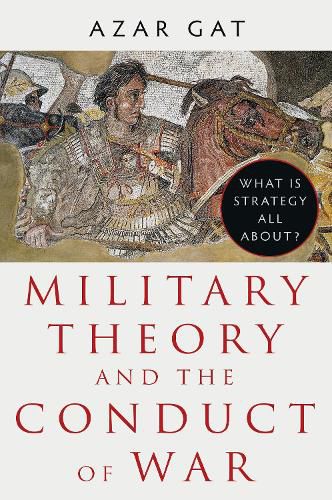Readings Newsletter
Become a Readings Member to make your shopping experience even easier.
Sign in or sign up for free!
You’re not far away from qualifying for FREE standard shipping within Australia
You’ve qualified for FREE standard shipping within Australia
The cart is loading…






The question of whether there is a general, universal theory for the conduct of war has long preoccupied military thinkers, army personnel and students of conflict. Warfare has been radically transformed throughout history, under the influence of technological change. But is there anything enduring that can be determined about it, taught in military schools and applied in practice?
Azar Gat offers a fresh look at the relationship between politics and war, examining the meanings of 'victory', offence and defence, and the significance and role of concepts like the 'principles of war' and military 'doctrine'. He analyses the successive military innovations of modernity, including the advent of nuclear weapons and the ongoing cyber and robotics revolutions of our own times. He also explains why guerrilla warfare and terrorism have grown increasingly important, and where they are heading.
With China and Russia posing a growing challenge to the global order today, Gat asks if war is truly in our nature-or if it is, in fact, declining. This is a vital text for all students of war, whether in academia, in the military or among the public at large.
$9.00 standard shipping within Australia
FREE standard shipping within Australia for orders over $100.00
Express & International shipping calculated at checkout
The question of whether there is a general, universal theory for the conduct of war has long preoccupied military thinkers, army personnel and students of conflict. Warfare has been radically transformed throughout history, under the influence of technological change. But is there anything enduring that can be determined about it, taught in military schools and applied in practice?
Azar Gat offers a fresh look at the relationship between politics and war, examining the meanings of 'victory', offence and defence, and the significance and role of concepts like the 'principles of war' and military 'doctrine'. He analyses the successive military innovations of modernity, including the advent of nuclear weapons and the ongoing cyber and robotics revolutions of our own times. He also explains why guerrilla warfare and terrorism have grown increasingly important, and where they are heading.
With China and Russia posing a growing challenge to the global order today, Gat asks if war is truly in our nature-or if it is, in fact, declining. This is a vital text for all students of war, whether in academia, in the military or among the public at large.